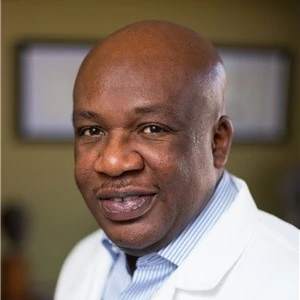
Early Disease Detection
Early disease detection. Refers to the identification of a condition before the manifestation of significant symptoms. This proactive approach aims to uncover hidden diseases & risk factors. Enabling interventions that prevent the progression of the disease. Particularly chronic & life-threatening illnesses such as:
- cancer
- cardiovascular diseases
- diabetes
Diagnosing diseases before they progress leads to better health outcomes. For instance, early-stage cancers are more treatable & often curable. Compared to their later-stage counterparts, which might require more complex & costly interventions[1][2].
The benefits of early detection are manifold. Extending from improved health outcomes to significant cost savings for healthcare systems.
Benefits of Early Disease Detection
Improved Outcomes
Many diseases, when caught early, are more responsive to treatment.
Easier Treatment
Treating diseases in their early stages is often less invasive. With fewer side effects & a higher success rate.
Preventing Complications
Early intervention can stop a disease from progressing. Preventing serious health complications, such as organ damage or disability.
Improved Quality of Life
Successful early treatment may mean a faster recovery. And less disruption to a person's life.
Increased Survival Rates
With deadly illnesses such as cancer. Early diagnosis is often associated with significantly higher survival rates.
Cost-Effectiveness
By preventing disease progression. Early detection reduces the need for more complex, costly treatments & hospitalizations.
Methods of Early Detection
Early disease detection utilizes a variety of methods. Tailored to specific diseases & conditions. These include:
Regular Screenings
Proactive screenings for various conditions based on age, risk factors, & family history.
Cancer screenings
Mammograms, colonoscopies, skin checks
Cardiovascular health
Blood pressure, cholesterol, & blood sugar checks
Bone health
Bone density scans (for osteoporosis risk)
Self-Awareness
Paying attention to your body. And reporting any new, persistent, or unusual symptoms to your doctor. This could include unexplained pain, lumps, changes in bowel habits, or non-healing wounds.
Genetic Testing
For some with a strong family history of specific diseases. Genetic testing may identify a higher risk, prompting closer monitoring or early intervention.
Emerging Technologies
Researchers are developing new technologies like advanced blood tests & imaging. Continuously improving early detection for many conditions.
Who Should Be Screened?
Everyone
Regular health checkups are vital for all.
Higher Risk Individuals
Those with the following may need more frequent or specialized screenings:
- Family history of specific diseases
- Personal risk factors (smoking, obesity, etc.)
- Prior exposure to toxins or environmental hazards
Screening Programs
Screening involves testing asymptomatic individuals. To identify those who may have an increased risk of a particular disease. Examples include:
- mammograms for breast cancer
- colonoscopies for colorectal cancer
- blood pressure measurements for hypertension
Genetic Testing & Counseling
For diseases with a known genetic predisposition. Genetic testing & counseling can provide individuals with information about their risk factors. Guiding preventive measures & early interventions.
Biomarker Detection
Advancements in medical science have led to the identification of biomarkers. Indicating the early stages of a disease. Markers found in blood, tissues, or other bodily fluids. It Can signal the presence of disease before symptoms occur.
Challenges & Considerations
Early disease detection has its challenges. False positives can lead to unnecessary anxiety & interventions. While false negatives may provide a false sense of security. The sensitivity & specificity of screening tests are crucial factors. Socioeconomic factors limit access to early detection programs. Underscoring the need for equitable healthcare policies.
Overcoming Barriers
Cost
Work with your doctor & insurer to understand coverage & access affordable options.
Misinformation
Rely on trusted sources of medical information. Like your doctor, reputable health organizations, or peer-reviewed research.
Fear
The benefits of early detection outweigh the potential discomfort of screenings. Talk to your doctor about any anxiety.
Empowering Yourself
Talk to Your Doctor
Discuss your individual risk factors & create a personalized screening plan.
Know Your Body
Be vigilant about changes & get them checked.
Advocate for Your Health
Don't be afraid to ask questions & seek second opinions if necessary.
Technologies Paving the Way
AI & Machine Learning
Artificial intelligence (AI) & machine learning (ML) are transforming early disease detection. These technologies are capable of analyzing vast amounts of medical data, including:
- genetic information
- medical imaging
- patient health records
To identify patterns that precede illness3. For example, AI algorithms can analyze mammograms with higher accuracy than traditional methods. Leading to earlier detection of breast cancer[1]. Similarly, AI-driven tools used in cardiology detect subtle signs of heart disease. That may be overlooked in routine examinations[1].
Genetic Screening
Advancements in genetic screening have also enhanced our ability to detect diseases early. Technologies like CRISPR & next-generation sequencing. Allow for detailed analysis of an individual’s genetic makeup. Helping to predict the likelihood of developing certain conditions[2]. This facilitates early intervention & personalizes medicine. Crafting treatments to the genetic profile of the patient.
Wearable Technology
Wearable technology has become sophisticated. Capable of monitoring a wide range of physiological parameters in real-time. Devices that track:
- heart rate
- blood glucose levels
- even oxygen saturation
Can alert users to potential health issues before they become apparent[2]. This continuous monitoring is invaluable for early disease detection & management. Particularly for chronic conditions.
Impact on Healthcare
The integration of advanced technologies into routine medical practice. It has profound implications for healthcare delivery. Early disease detection enables:
Reduce Healthcare Costs
Early intervention typically requires less extensive treatment compared to addressing advanced-stage diseases. This reduction in treatment complexity & duration can lead to significant cost savings[1].
Improved Patient Outcomes
Patients benefit from higher survival rates & better quality of life. When catching & treating diseases early[1].
Enhanced Preventive Care
With better predictive tools, healthcare shifts from a reactive to a proactive model. Where prevention & early intervention become the norm[1].
Challenges & Future Directions
Innovations such as AI & machine learning enhance the accuracy of diagnostic tools. While wearable technology is enabling continuous monitoring of vital health indicators. These advancements promise to make early detection more accessible & accurate. Revolutionizing the approach to preventive healthcare.
Despite its benefits, the implementation of early disease detection technologies faces several challenges. These include[1][2]:
- the need for large-scale validation studies
- integration into existing healthcare systems
- addressing privacy concerns related to genetic & data privacy
- widespread education & training for healthcare providers to effectively utilize these advanced technologies
Early disease detection will play an increasingly central role in healthcare. The potential to transform healthcare is immense with:
- ongoing advancements in AI
- genetic screening
- wearable technologies
The focus will continue to shift towards more personalized & preventive care. Promising a future where life-threatening diseases can be more effectively managed. Or eradicated. Before they can cause significant harm.
The Takeaway
Early disease detection offers the potential to change the course of your health by:
- partnering with your doctor
- taking charge of your health
- preventative screenings
Give yourself the invaluable gift of a longer, healthier, & more fulfilling life.
